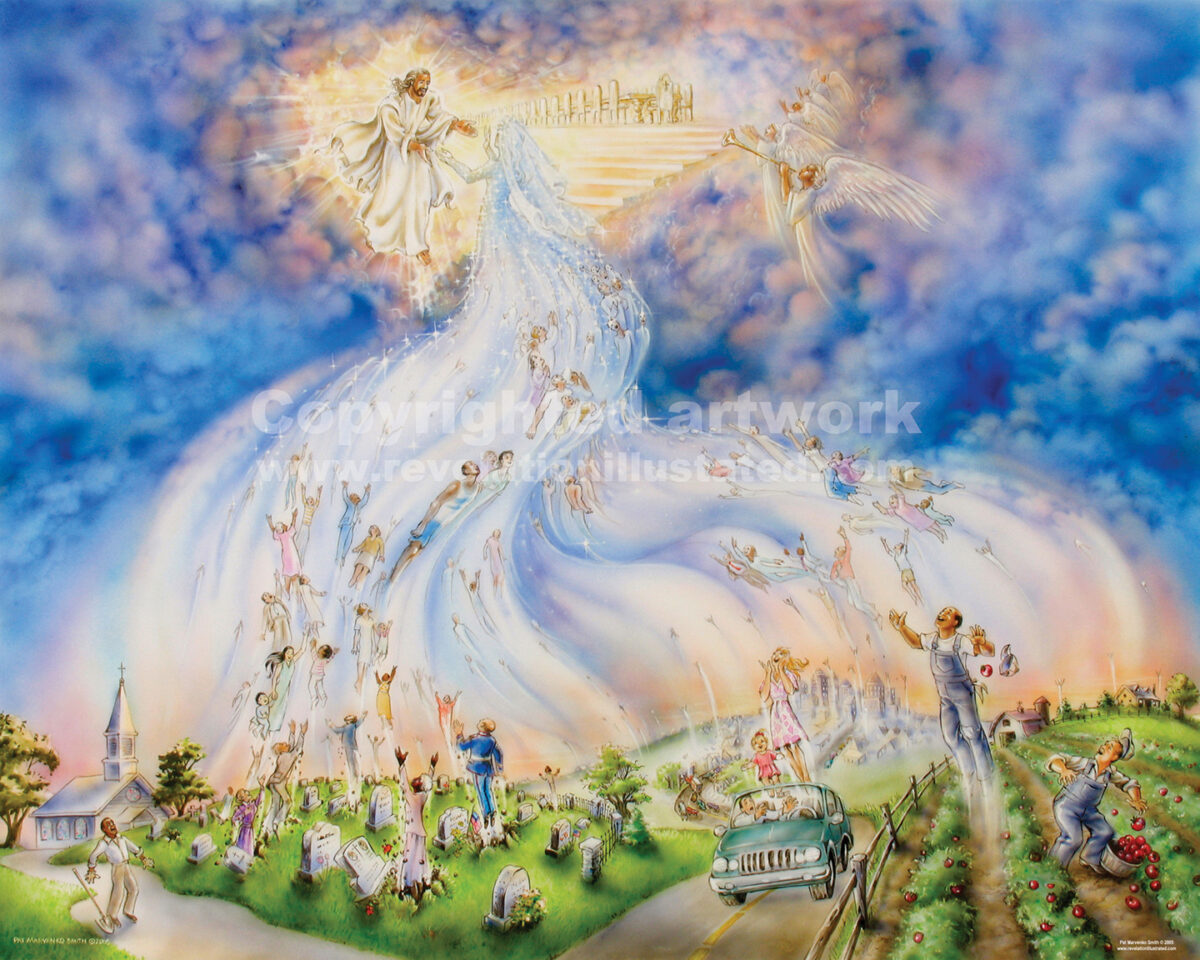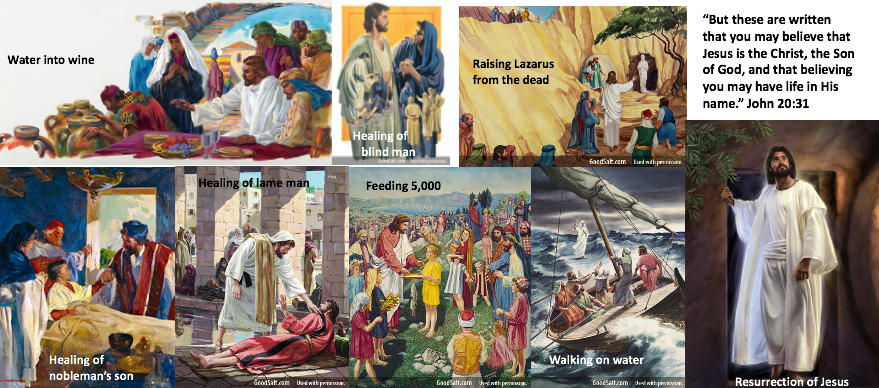“Behold, I am coming quickly! Blessed is he who keeps the words of the prophecy of this book.” Revelation 22:7
Chuck Swindoll quotes Ravi Zaharias, “Our society is walking through a maze of cultural land mines, and the heaviest price is exacted as we send our children on ahead.” 1
Swindoll continues, “Mazes, land mines, and exuberant youth who rarely watch where they’re going or look before they leap: That about sums up the present world.
“The twentieth century saw the rise of a generation that not only rejected much of what their elders held as unassailable truth but even began to doubt the concept of ‘truth’ itself! The tragic result has been a philosophical system known as ‘relativism’ or ‘postmodernism.’ It’s the belief that truth should be defined as merely the commonly held beliefs of a particular culture or society. As such, the belief systems that individuals or groups use to make sense of their world aren’t necessarily valid for another person or group.
“Through the media, academia, and other opinion formers, this idea continues to shape the thinking of most people in the twenty-first century. Younger generations are left to grope aimlessly through the relativistic maze, feeling insecure, fearful, and overwhelmed. They don’t realize that land mines await them around every turn – destructive deceptions and immoral acts that can bring calamity, even an early death.
“Paul the apostle warned his young protégé Timothy that a primary characteristic of the latter days would be the widespread rejection of truth (I Timothy 4:1-2; 2 Timothy 4:3-4). In light of this warning, the book of Revelation provides exactly what the coming end-times generation – and every generation – needs: objective, certified, reliable truth. When armed with this truth, people can face their fallen world with greater security, deeper faith, and stronger courage.” 2
All the visions that the apostle John had received from Revelation 4:1-22:5 had now ended. In the conclusion of the book of Revelation (22:6-21), the Lord Jesus Christ personally emphasizes some essential truths that He wants His listeners in the local churches to hear and embrace. 3
“Then he said to me, ‘These words are faithful and true.’ And the Lord God of the spirits of the prophets sent His angel to show His servants the things which must shortly take place.” (Revelation 22:6). Since the visions of the future ended with 22:5, the angel who now speaks to John is probably the original angel whom Jesus sent to John at the beginning of the book of Revelation (cf. 1:1). 4 This angel assures John that “the things” prophesied to “shortly take place” (4:1-22:5), which John had just seen, were “faithful and true.” 5The purpose of the book of Revelation is not to bewilder and confuse but to reveal many certainties about future events. 6
“This directly contradicts the point of view of many scholars that the Book of Revelation is an imponderable mystery for which no key is available today. This book is the Word of God and not the imaginations of John. In addition, it is intended to describe future events. When taken in its literal, ordinary meaning, this is exactly what it does… The Word of God was not given to be obscure. It was given to be understood by those taught by the Spirit.” 7
The reason why these prophecies are “faithful and true” is because “the Lord God of the spirits of the prophets,” the Lord Jesus Christ, “sent His angel to show His servants,” of whom one is the apostle John, “the things which must shortly take place.” The book of Revelation records future events, which, from God’s point of view, will come upon humankind very soon. 8
In our confused culture, believers in Jesus are to anchor their souls in what is “faithful and true.” Since the book of Revelation comes from the Lord Jesus Christ Who is “the truth” (John 14:6) and cannot lie (Titus 1:2; Hebrews 6:18), it is very reliable. This inspired source of truth can be fully trusted. 9
The Lord Jesus Christ Himself speaks next! “Behold, I am coming quickly! Blessed is he who keeps the words of the prophecy of this book.” (Revelation 22:7). When the Lord Jesus says, “Behold…” He is telling us to stop what we are doing and pay attention to what He is about to say because it is extremely important. Jesus then announces, “I am coming quickly!” The Greek word translated “quickly” (tachy) means “soon, in a short time.” 10 The words “quickly” and “soon” both convey God’s perspective about His return for His church. His coming is always “soon” from “the standpoint of the saints’ foreview of the future, and when it occurs, it will come suddenly or quickly.” 11
The events of the Rapture of the church, the next event on God’s prophetic calendar (Revelation 4:1-4; cf. John 14:1-3; I Corinthians 15:50-57; I Thessalonians 4:13-18), will take place very quickly, “in a moment, in the twinkling of an eye,” the apostle Paul tells us in I Corinthians 15:52.
“The Greek word for ‘moment’ is atomos, from which we get our English word atom. Atomos refers to something that is indivisible, that cannot be divided. When Paul wrote these words, no one could imagine splitting the atomos. Today, we would translate this ‘in an instant,’ ‘in a split second,’ or ‘in a flash.’
“The second phrase that describes the duration of the Rapture is ‘in the twinkling of an eye.’ The Greek word for twinkling is rhipe. This might refer to the time it takes for light to reflect in the human eye. Others believe that it refers to the time it takes to blink your eye – ‘in the blink of an eye.’ Blinking is the quickest movement in the human body. People everywhere understand what ‘in the blink of an eye’ means.
“The main point is clear. All the events of this Rapture will happen instantaneously. In a flash. It will all happen so quickly that it will be completely unobservable to the human eye. Like replaying in slow motion a split-second catch in a football game, the Lord slows down the Rapture film for us so we can see exactly what will happen” 12 in I Thessalonians 4:13-18.
A brief outline of the events of the Rapture from I Thessalonians 4 includes:
- The Return of Christ in the air with Christians who have died– “For if we believe that Jesus died and rose again, even so God will bring with Him those who sleep in Jesus.” (4:14)
- The Resurrection of the bodies of Christians who have died – “15 For this we say to you by the word of the Lord, that we who are alive and remain until the coming of the Lord will by no means precede those who are asleep… 16 And the dead in Christ will rise first.” (4:15, 16b)
- The Rapture of living Christians – “Then we who are alive and remain shall be caught up…” (4:17a).
- The Reunion of both living and dead believers with the Lord in the air– “Then we who are alive and remain shall be caught up together with them in the clouds to meet the Lord in the air. And thus we shall always be with the Lord.” (4:17).
- The Reassurance from this truth – “Therefore comfort one another with these words” (4:18).
“But don’t let God’s slow-motion version of Rapture in I Thessalonians fool you. The Rapture will occur in a split second. Suddenly, corpses all over the world will be raised and reunited with perfected spirits, and living believers everywhere will be caught up to heaven [with] transformed body, soul, and spirit. The Rapture will shock the world. It will change everything.” 13
Jesus’ announcement of His soon coming in Revelation 22:7a is a message that both nonbelievers and believers must hear and respond to. For the non-Christian, he or she is to get right with God by believing in Jesus. The Bible says, “Believe on the Lord Jesus Christ, and you will be saved” (Acts 16:31). The word “believe” (pisteuō) in the New Testament means “to consider something to be true and therefore worthy of one’s trust.” 14
God is inviting all of us to “believe on the Lord Jesus Christ” alone to save us from the penalty of our sins because all of us have sinned against God with our thoughts, words, and actions (Romans 3:23). The penalty for our sins is “death” (Romans 6:23a) or separation from God. Because God is holy, righteous, and perfect, He cannot be around our sin (Habakkuk 1:13; Isaiah 59:2). The Bible tells us that the final punishment for our sin is death in the lake of fire (Mark 9:43-44; Revelation 20:15).
God does not want any human being to die forever in the lake of fire so out of love for us, He sent His only perfect Son, Jesus Christ (John 3:16), to earth to live a perfect life (since He is God – John 1:1; I John 5:20; 2 Corinthians 5:21; Hebrews 4:15; I Peter 3:18), and then die on a cross in our place and rise from the dead (I Corinthians 15:3-6; Romans 5:8), proving His claims to be God are true (Romans 1:3-4). Jesus Christ is alive today and He invites you to believe or trust in Him alone to save you from sin’s penalty and give you eternal life so you can enter His heaven in the future (Acts 16:31; John 3:16; Revelation 21-22).
Those of you who are reading this article need to ask yourself, “What am I trusting to get me into God’s heaven?” Are you trusting your works to get you into His heaven? Are you trusting Christ plus your works? Or are you trusting in Christ alone to get you into God’s heaven? The Bible tells us in Acts 16:31 to “believe” or trust in the Lord Jesus Christ alone (not our works or Christ plus our works) to save us from the penalty of sin so we can enter God’s heaven when we die or are Raptured, whichever takes place first.
If you have never understood and believed this before, and now you do, you can tell God this through prayer.
Prayer: Dear Lord Jesus, thank You for showing me that You are coming soon to remove Your church from the earth. Before today, I was not prepared to hear this. I did not understand that I am a sinner who deserves to be separated from You forever. I thought if I lived a good life and treated people like I want to be treated, I might make it into Your heaven. But Your Word reveals to me that I am a sinner who deserves to be punished for my sins forever separated from You in the lake of fire. However, my sin does not keep You from loving me and wanting to be in a personal relationship with me. I now believe You died in my place for my sins and rose from the dead. Right now, as best I know how, I am trusting You Lord Jesus to save me from sin’s penalty and give me everlasting life as a free gift. Thank You for the salvation I now have and for the future home I will have with You in Your heaven. Please help me to share this good news with others who do not know You so they can be ready for Your soon return. In Your precious name I pray, Lord Jesus. Amen.
Those of us who believe in Jesus for His gift of salvation are to respond to His announcement of coming soon by keeping His commands (cf. 22:9, 14). Jesus said, “Blessed is he who keeps the words of the prophecy of this book.” (Revelation 22:7b). God has given us “the words of the prophecy of this book” [Revelation], not only so we might learn about future events, but so we may also prepare (“keeps”) for them and be “blessed.”
In view of Jesus’ soon return, believers in Jesus are to take the words of the book Revelation seriously and act on them. 15 We are to anticipate what God has predicted. People today often doubt whether we can know anything for certain about the present and the past, much less about the future. 16 There is so much fake news in our world today, that we are prone to doubt nearly everything we hear. However, as believers in the God of truth, we can trust what He has said about the future: “Indeed I have spoken it; I will also bring it to pass. I have purposed it; I will also do it.” (Isaiah 46:11).
“We are to live in a constant state of readiness, not neglecting our duties or failing to prepare for the future, but always looking forward to the soon-coming of Christ to take us home.” 17
It is tragic that this last book of the Bible which promises a blessing to those who read it, hear it, and keep what is written in it (Revelation 1:3; cf. 22:7), is often neglected by churches and individual Christians alike more than any other book of the Bible. This is so ironic because of all the books in the Bible, the book of Revelation contains more promises of blessing than any other book. 18 Perhaps Satan is behind this avoidance of this profound prophetic book because he does not want God’s people to receive God’s blessings nor be prepared for what is coming.
Prayer: Glorious Lord God, thank You for the book of Revelation which informs us of many future certainties so we can prepare for what is coming and receive Your many blessings. Every word in the book of Revelation is faithful and true. Help us to read and keep the words of this prophetic book so we can face a world that has rejected Your truth and is spiraling out of control as a result. May we be armed with Your truth so we can face this broken world with more security, unwavering faith, and greater courage in the days ahead. In the mighty name of Jesus Christ, we pray. Amen.
ENDNOTES:
1. Charles Swindoll, Insights on Revelation (Swindoll’s Living Insights New Testament Commentary Book 15, Tyndale House Publishers, Inc., 2014 Kindle Edition), pg. 397 cites Ravi Zacharias, Recapture the Wonder (Brentwood, TN: Integrity Publishers, 2003), pg. 27.
2. Swindoll, pp. 397-398.
3. Bob Vacendak; Robert Wilkin; J. Bond; Gary Derickson; Brad Doskocil; Zane Hodges; Dwight Hunt; Shawn Leach; The Grace New Testament Commentary: Revised Edition (Grace Evangelical Society, Kindle Edition, 2019), pg. 1588.
4. Ibid., pg. 1589.
5. Tom Constable, Notes on Revelation, 2017 Edition, pg. 251.
6. John F. Walvoord, The Bible Knowledge Commentary Epistles and Prophecy, Editors John F. Walvoord and Roy B. Zuck (David C. Cook, 2018 Kindle Edition), Kindle Location 6644 to 6649.
7. Ibid.
8. Vacendak, pg. 1589.
9. Swindoll, pg. 398.
10. Walter Bauer, A Greek-English Lexicon of the New Testament and Other Early Christian Literature: Third Edition (BDAG) revised and edited by Frederick William Danker (Chicago: University of Chicago Press, 2000 Kindle Edition), pg. 993.
11. Walvoord, Kindle Location 6654.
12. Mark Hitchcock, The End: A Complete Overview of Bible Prophecy and the End of Days (Carol Stream, IL: Tyndale House Publishers, Inc., 2012 Kindle Edition), pg. 129.
13. Ibid., pp. 129-130.
14. Bauer, pg. 816.
15. Tony Evans, CSB Bible by Holman, The Tony Evans Study Commentary (B & H Publishing Group, Kindle Edition 2019), pg. 2424.
16. Swindoll, pg. 398.
17. Ibid.
18. Constable, pg. 252; cf. Walvoord, Kindle Location 6656.





